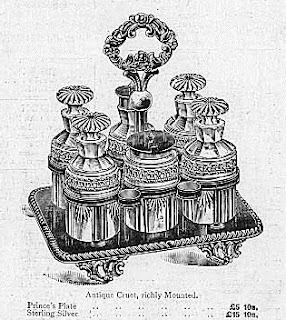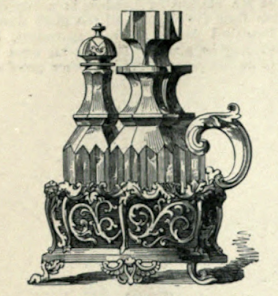Some of our oldest, most basic foods can be found in salad dressing, including oil and vinegar. So where do we get these words? Their origins are more interesting than you might expect for such ordinary words.
oil - Once upon a time all oil was olive oil. The word oil derives (by way of French, by way of Latin) from the Greek elaion meaning “olive tree.” Not until after about 1300 did the (Middle) English word begin to expand its meaning to include other fatty or greasy liquids.
vinegar - Once upon a time all vinegar was wine vinegar. You can see the wine right there in the word: vin-. Our word equals “wine + sour” in Old French, ultimately from Latin (although the actual Latin word for vinegar is vinum acetum.) Oddly, the -egar part of the word is the same as the word eager, which originally meant “strenuous, ardent, fierce,” because the Old French had picked up on the other connotations of the Latin word that meant “sharp, piercing, ardent, zealous” as well as “sour.”
mustard - We’ve got more wine in the mustard, which derives (again by way of Old French) from Latin mustum meaning “new wine,” because the condiment was originally made by mixing the crushed seeds with wine. From the condiment named after the wine, the word was applied to the seeds (late 13th c) and eventually to the plant (mid 14th c). The color meaning came much later - mid 19th c. On a fun side note, Dijon mustard is of course named for the city of Dijon in France, but that city’s name derives from the Latin name Divius, meaning “divine.”
salad - The salad itself was once upon a time vegetables seasoned with brine, and the word derives from Latin for “salted.” The slaw that might be a particular type of salad comes from the same root, but by way of Dutch.
So any time you dress a salad your words are seasoned with a long and flavorful linguistic history. And if you’re eager for vinegar and think mustard divine, you’re right on target.
[Pictures: Antique Cruet, richly Mounted, engraving from advertisement for Mappin & Webb’s, 1895 (Image from ebay);
Cruet-Frame with an arabesque pattern, by Messrs. Elkington, shown in the Great Exhibition of 1851, engraving from The Art Journal Illustrated Catalogue: The Industry of All Nations (Image from Hathi Trust);
Six-Bottle Dinner Cruet, engraving from advertisement for Mappin & Webb’s, 1892 (Image from ebay).]




2 comments:
Thanks for the erudite and equilibristic ride through the story of salad and cruet. Have a happy New year and merry last days of Christmas.
Great post, very educational. Happy New Year!
Post a Comment